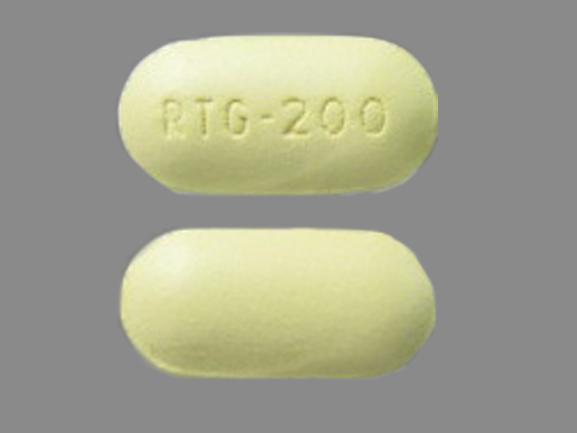Potiga Disease Interactions
There are 8 disease interactions with Potiga (ezogabine).
- Suicidal tendency
- Alcoholism
- Hepatic impairment
- Hyperbilirubinemia
- QT prolongation
- Renal impairment
- Retinal abnormalities
- Urinary retention
Antiepileptics (applies to Potiga) suicidal tendency
Moderate Potential Hazard, Moderate plausibility. Applicable conditions: Depression, Psychosis
Antiepileptic drugs (AEDs) have been associated with an increased risk of suicidal thoughts or behavior in patients taking these drugs for any indication. Pooled analyses of 199 placebo-controlled clinical studies involving the use of 11 different AEDs showed that patients receiving AEDs had approximately twice the risk of suicidal thinking or behavior compared to patients receiving placebo. AEDs should be administered cautiously in patients with depression or other psychiatric disorders; phentermine-topiramate should be avoided in patients with history of suicidal attempts or active suicidal ideation. The risk of suicidal thoughts and behavior should be carefully assessed against the risk of untreated illness, bearing in mind that epilepsy and many other conditions for which AEDs are prescribed are themselves associated with morbidity and mortality and an increased risk of suicidal thoughts and behavior. Patients, caregivers, and families should be alert to the emergence or worsening of signs and symptoms of depression, any unusual changes in mood or behavior, or the emergence of suicidal thoughts or behavior. If patients have symptoms of suicidal ideation or behavior, a dosage reduction or treatment discontinuation should be considered.
References
- "Product Information. Tegretol (carbamazepine)." Novartis Pharmaceuticals PROD (2002):
- "Product Information. Klonopin (clonazepam)." Roche Laboratories PROD (2001):
- "Product Information. Dilantin (phenytoin)." Parke-Davis PROD (2001):
- "Product Information. Cerebyx (fosphenytoin)." Parke-Davis PROD (2001):
- "Product Information. Mysoline (primidone)." Elan Pharmaceuticals PROD (2001):
- "Product Information. Lyrica (pregabalin)." Pfizer U.S. Pharmaceuticals Group (2005):
- "Product Information. Sabril (vigabatrin)." Lundbeck Inc (2009):
- "Product Information. Potiga (ezogabine)." GlaxoSmithKline (2011):
- "Product Information. Fycompa (perampanel)." Eisai Inc (2012):
- "Product Information. Briviact (brivaracetam)." UCB Pharma Inc (2016):
- "Product Information. Epidiolex (cannabidiol)." Greenwich Biosciences LLC (2018):
- "Product Information. Xcopri (cenobamate)." SK Life Science, Inc. (2020):
- "Product Information. Fintepla (fenfluramine)." Zogenix, Inc (2020):
- "Product Information. Ztalmy (ganaxolone)." Marinus Pharmaceuticals, Inc (2022):
- "Product Information. Diacomit (stiripentol)." Biocodex USA SUPPL-3 (2022):
- "Product Information. Qsymia (phentermine-topiramate)." Vivus Inc SUPPL-23 (2023):
- "Product Information. Topamax (topiramate)." Janssen Pharmaceuticals SUPPL-65 (2023):
Ezogabine (applies to Potiga) alcoholism
Moderate Potential Hazard, Moderate plausibility. Applicable conditions: Acute Alcohol Intoxication
The use ezogabine with alcohol increases the systemic exposure to ezogabine. Patients should be advised of possible worsening of dose-related adverse reactions if they take ezogabine with alcohol.
References
- "Product Information. Potiga (ezogabine)." GlaxoSmithKline (2011):
Ezogabine (applies to Potiga) hepatic impairment
Moderate Potential Hazard, Moderate plausibility. Applicable conditions: Liver Disease
No dosage adjustment is recommended in patients with mild hepatic impairment. Dosage adjustment is recommended in patients with moderate or severe hepatic impairment. Close monitoring is recommended.
References
- "Product Information. Potiga (ezogabine)." GlaxoSmithKline (2011):
Ezogabine (applies to Potiga) hyperbilirubinemia
Moderate Potential Hazard, Moderate plausibility.
Ezogabine has been shown to interfere with clinical laboratory assays of both serum and urine bilirubin, which can result in falsely elevated readings.
References
- "Product Information. Potiga (ezogabine)." GlaxoSmithKline (2011):
Ezogabine (applies to Potiga) QT prolongation
Moderate Potential Hazard, Moderate plausibility. Applicable conditions: Hypokalemia, Electrolyte Abnormalities, Heart Disease
QT prolongation was observed in patients treated with ezogabine. It is recommended to monitor the QT interval when ezogabine is used with medicines known to increase QT interval and in patients with known prolonged QT interval, congestive heart failure, ventricular hypertrophy, hypokalemia, or hypomagnesemia.
References
- "Product Information. Potiga (ezogabine)." GlaxoSmithKline (2011):
Ezogabine (applies to Potiga) renal impairment
Moderate Potential Hazard, Moderate plausibility. Applicable conditions: Renal Dysfunction
Dosage adjustment is recommended in patients with creatinine clearance <50 mL/min or patients with end-stage renal disease receiving hemodialysis. A supplemental dose is recommended immediately following hemodialysis. Close monitoring is recommended.
References
- "Product Information. Potiga (ezogabine)." GlaxoSmithKline (2011):
Ezogabine (applies to Potiga) retinal abnormalities
Moderate Potential Hazard, Moderate plausibility. Applicable conditions: Retinal Disorder
The use of ezogabine can cause abnormalities of the retina. Patients should have baseline ophthalmologic testing by an ophthalmic professional and follow-up testing as clinically indicated. Patients who cannot be monitored should not be treated with ezogabine. The ophthalmologic monitoring program should include visual acuity testing, dilated fundus photography, and optical coherence tomography. Additional testing may include fluorescein angiograms, perimetry, and electroretinograms. If retinal pigmentary abnormalities or vision changes are detected, ezogabine should be discontinued unless no other suitable treatment options are available and the benefits of treatment outweigh the potential risk of vision loss.
References
- "Product Information. Potiga (ezogabine)." GlaxoSmithKline (2011):
Ezogabine (applies to Potiga) urinary retention
Moderate Potential Hazard, Moderate plausibility.
The use of ezogabine may cause urinary retention. A comprehensive evaluation of urologic symptoms should be conducted prior to and during treatment with ezogabine as clinically indicated. It is recommended to monitor closely for urologic symptoms in patients at risk.
References
- "Product Information. Potiga (ezogabine)." GlaxoSmithKline (2011):
Potiga drug interactions
There are 455 drug interactions with Potiga (ezogabine).
Potiga alcohol/food interactions
There is 1 alcohol/food interaction with Potiga (ezogabine).
More about Potiga (ezogabine)
- Potiga consumer information
- Check interactions
- Compare alternatives
- Drug images
- Side effects
- Dosage information
- During pregnancy
- FDA approval history
- Drug class: neuronal potassium channel openers
- Breastfeeding
Related treatment guides
Drug Interaction Classification
| Highly clinically significant. Avoid combinations; the risk of the interaction outweighs the benefit. | |
| Moderately clinically significant. Usually avoid combinations; use it only under special circumstances. | |
| Minimally clinically significant. Minimize risk; assess risk and consider an alternative drug, take steps to circumvent the interaction risk and/or institute a monitoring plan. | |
| No interaction information available. |
Further information
Always consult your healthcare provider to ensure the information displayed on this page applies to your personal circumstances.


